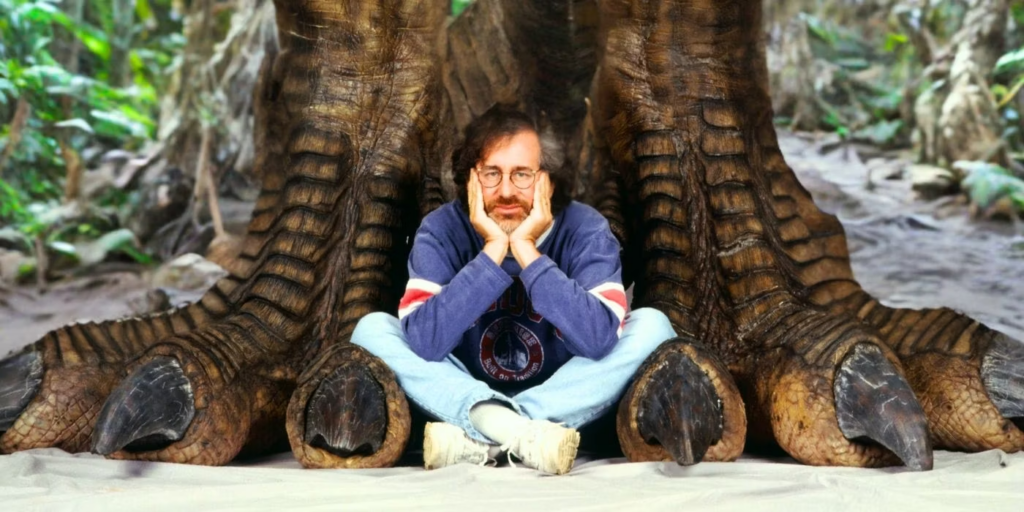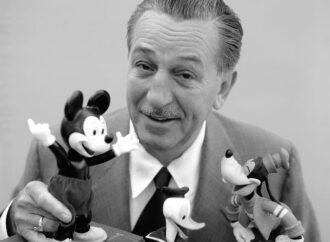From Rejected Dreamer to Hollywood Legend: The Spielberg Saga.
Steven Spielberg, born on December 18, 1946, in Cincinnati, Ohio, is one of the most influential filmmakers in the history of cinema. His journey to success is a testament to his passion for storytelling, innovation, and resilience.
Spielberg’s fascination with filmmaking began at a young age. Growing up in Phoenix, Arizona, he started making 8mm films with his friends, showcasing a natural talent for creating compelling narratives. At 16, he directed his first independent film, “Firelight,” a sci-fi adventure, foreshadowing his future genre-defining work.

Despite his evident talent, Spielberg faced rejection when he applied to the University of Southern California’s prestigious film school. Undeterred, he enrolled at California State University, Long Beach. His break came when he interned at Universal Studios, where he impressed executives with a short film, “Amblin’,” leading to a seven-year directing contract.
Spielberg’s first major directorial effort was the 1971 TV movie “Duel,” a suspenseful thriller that showcased his knack for tension and pacing. Its success led to more television work and eventually his first feature film, “The Sugarland Express” (1974), which, despite modest box office returns, was critically acclaimed.
In 1975, Spielberg’s career skyrocketed with the release of “Jaws.” The film, about a great white shark terrorizing a small beach town, became the first summer blockbuster, grossing over $470 million worldwide. “Jaws” not only established Spielberg as a master of suspense but also changed Hollywood’s approach to marketing and releasing films.
Spielberg followed “Jaws” with a series of iconic films that have become cultural touchstones. “Close Encounters of the Third Kind” (1977) explored human contact with extraterrestrials, combining awe and wonder with Spielberg’s signature storytelling. In 1981, he introduced the world to Indiana Jones with “Raiders of the Lost Ark,” an action-adventure film that became a beloved franchise.

In 1982, Spielberg directed “E.T. the Extra-Terrestrial,” a heartwarming tale of friendship between a young boy and an alien. “E.T.” became the highest-grossing film of its time, further cementing Spielberg’s reputation as a filmmaker who could captivate audiences of all ages.
Throughout the 1980s and 1990s, Spielberg continued to dominate the box office with a diverse array of films, from the terrifying “Jurassic Park” (1993), which revolutionized special effects, to the harrowing Holocaust drama “Schindler’s List” (1993), which earned him his first Academy Award for Best Director. “Schindler’s List” showcased Spielberg’s ability to tackle serious historical subjects with sensitivity and depth.

Spielberg’s career has been marked by his versatility, directing everything from historical dramas like “Saving Private Ryan” (1998) to sci-fi adventures like “Minority Report” (2002). He co-founded DreamWorks SKG in 1994, further influencing the film industry by producing numerous successful films and fostering new talent.
Spielberg’s impact extends beyond box office success. His films often explore themes of humanity, wonder, and resilience, resonating deeply with audiences. He has received numerous accolades, including multiple Academy Awards, and his work has inspired countless filmmakers.
Steven Spielberg’s success story is a testament to his enduring passion for storytelling and his relentless pursuit of innovation. From his early days with a camera to becoming a Hollywood legend, Spielberg has transformed cinema, creating timeless stories that continue to enchant and inspire. His journey exemplifies the power of imagination and the impact of visionary leadership in the arts.
























Leave a Comment
Your email address will not be published. Required fields are marked with *